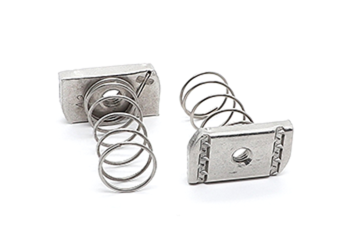Jan . 06, 2025 19:06 Back to list
anchor bolt types
Anchor bolts are a crucial component in construction, ensuring that structures remain steadfast and secure. These seemingly simple devices provide the essential connection between various structural and non-structural elements, helping to prevent movement during environmental stresses. There are several types of anchor bolts, each tailored for specific applications, and understanding these can greatly influence the success of a project.

The most common type is the cast-in-place anchor bolt, typically used in new construction projects. As the name suggests, these bolts are set into wet concrete with their threaded ends protruding above the surface. The concrete hardens around the bolt, embedding it securely. This type is favored for its high load-bearing capacity and resilience against shifting forces. Proper installation is critical, as misalignment can compromise structural integrity, requiring precision and expertise during the construction process.
Wedge anchors are another popular option. Known for their intense holding power, they are particularly useful in dense materials such as concrete. Wedge anchors are inserted into a pre-drilled hole and then expanded, gripping the sides tightly. Their design makes them ideal for heavy-duty applications such as securing large machinery or supporting structural beams. It is essential for professionals to select the correct diameter and length to match the particular demands of the task, ensuring maximum effectiveness.

For situations that require removable or replaceable fixing, sleeve anchors present an optimal solution. They function similarly to wedge anchors but include an outer sleeve that expands against the material. This feature provides a reliable hold with the added benefit of easy removal if adjustments are needed. These anchors are versatile, suitable for both solid and hollow materials, including masonry and brick. Their adaptability makes them a favorite in renovation projects where alterations are frequent.
anchor bolt types
Expansion anchors, including drop-in versions, are another versatile category, renowned for their use in overhead applications. A common sight on projects involving suspended panels or cables, these anchors require a setting tool for proper installation. Once in place, they provide solid reinforcement that is particularly resistant to vibrations. Engineers often turn to expansion anchors for challenging environments where dependability and strength are non-negotiable.
Finally, epoxy anchor bolts offer a solution for the most demanding conditions. These are post-installed anchors bonded into place using an epoxy resin. They provide superior strength and are perfect where precise placement and high tension are required. Their application is extensive, from bridge construction to seismic retrofitting, underscoring their reliability in extreme scenarios. Installing epoxy anchors demands a high level of skill to ensure the chemical bonds form correctly, highlighting the need for experienced technicians.
In selecting an appropriate anchor bolt type, consideration of the load specifications, environmental conditions, and material compatibility is vital. Consultation with structural engineers and adherence to building codes is an integral part of the decision-making process, underscoring the importance of professional guidance.
The world of anchor bolts is complex and varied, demanding both expertise and experience to navigate effectively. By understanding the unique qualities of each type, construction professionals can ensure their projects stand the test of time, delivering safety and durability.


